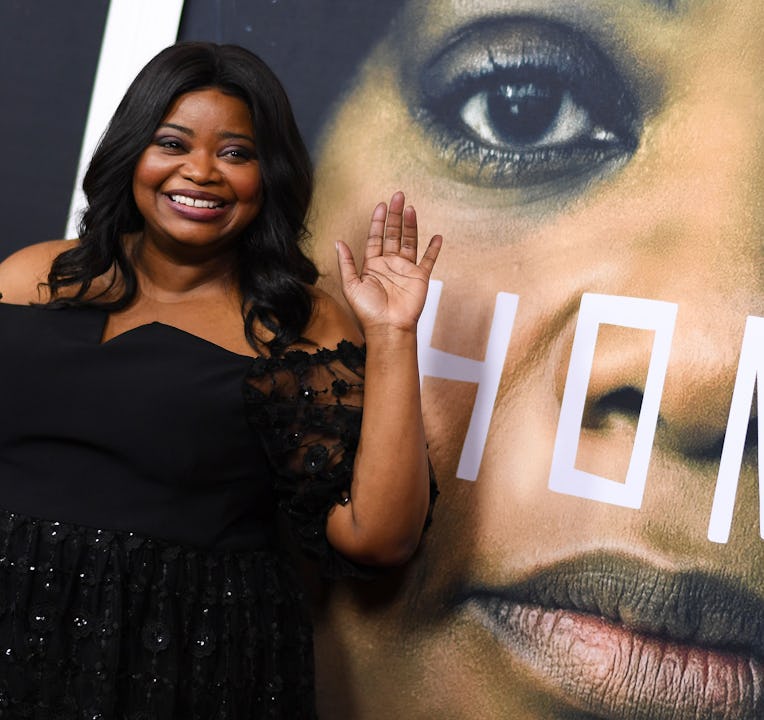'Ma' Reconsidered: Reconsidered
We thought Ma was right. Now maybe we think she was wrong.

We would like to apologize. Last year, we wrote a piece entitled “Ma: Reconsidered” in which we argued that perhaps Ma from the movie Ma was justified in her actions. We’ve spent the last year reflecting and would like to say: we were wrong.
In case you need to be reminded, Ma is a film in which Ma (Octavia Spencer) becomes obsessed with the teenaged children of a group of people who traumatized her. She lures the teens to her house with the promise of free booze and no supervision, but then tries to murder all of them. Additionally, she is afflicted with Munchausen syndrome by proxy, and keeps her (perfectly healthy) daughter in a wheelchair. She also threatens to cut off a grown man’s penis while giving him a transfusion of dog blood, but settles for killing him instead.
While many of Ma’s grievances remain valid, we have come to realize that pain is not something to be wielded. No matter how much pain Sue Ann (A.K.A. Ma) was in, her past doesn’t mean she’s allowed to kidnap children and torture them in her basement. When we talk about reparations, Sue Ann’s actions are not what we as a community need.
As often happens with good art, our relationship to Ma has changed as we’ve grown. Each viewing of Ma (a collective 12) reveals something new to us both. For Olivia, it’s an understanding that even though hurt people hurt people, the line has to be drawn somewhere. We cannot extend an infinite amount of grace to those who commit violent acts. For Sarah, it’s that even if someone is a huge loser and you feel bad for them, they are still capable of great and unjustified harm.
In re-re-considering Ma’s choices, she had other options that didn’t involve traumatizing a new generation of teens. She could have had a productive and open conversation with her tormentors. Assuming Ma knows the violence she’s capable of, she could have gotten a job as a vet assistant anywhere else in the country. Why stay in the small town of your tormentors?
In our first assessment of Ma, we wrote the following:
Ma is clearly positioned as an unhinged psychopath preying on vulnerable children. But subtextually, Ma is about a traumatized Black woman who doesn’t have the resources to process her past. Although it is true that Ma maybe shouldn’t have kept children in her basement chained up by leashes —stabbing one of them, sewing another’s mouth shut, branding one with an iron — it’s hard to deny that she might have been a little right.
Let’s take into account the context of Ma’s crimes. She’s a single mother in some small town in the middle of nowhere, seemingly the only Black person in town other than Darrell and her own child that she keeps hidden from the world. She was sexually assaulted as a teenager in some sort of evil prank by her white peers.
We no longer think Ma was “a little right.” Having come to our senses, we can now see there is no justification for stabbing a child, even a really annoying one. That being said, Ma’s underlying issues — being a Black single mother in a town that hates her, sexual trauma, and her need for validation — can be addressed in a healthier way. We want her to succeed.
Ma is highly skilled, a compelling dancer, teens want to be around her, she creates an undeniable good vibe at every party she throws. Maybe in another world, Sue Ann could have been the front desk lady at your high school who everyone loves. She won’t mark you tardy, she has a secret drawer full of snacks, and she’s always wearing a rockin’ outfit. Or she could easily work as an event planner who specializes in bar mitzvahs and sweet sixteens. Who would hate Ma under those circumstances?
If we could say anything to Ma, it would be that it’s not healthy to stay in a place that is triggering for you. The world is so big. You will find your chosen family and they won’t have to be the children of the teens who bullied you.
Our new understanding of Ma comes with the idea that perhaps the lore of Ma should be explored with not just a sequel, but a prequel. Screenwriter Scotty Landes may not know it, but he created a universe that has infinite possibilities. Ma is amazing IP. We should be able to understand Sue Ann before she became Ma as we know her. Think Pearl, but for Ma. Show us how Sue Ann became Ma, where her path from lovable administrator who wears fun accessories forked inevitably toward violence and death.
Our original assessment of Ma being right to kidnap those children came from a place of pure love of Sue Ann. We saw ourselves in her pain, and we continue to honor that. But true love isn't about blindly accepting a person’s misdeeds. Love is about holding the ones you cherish accountable, no matter how much joy they give you.